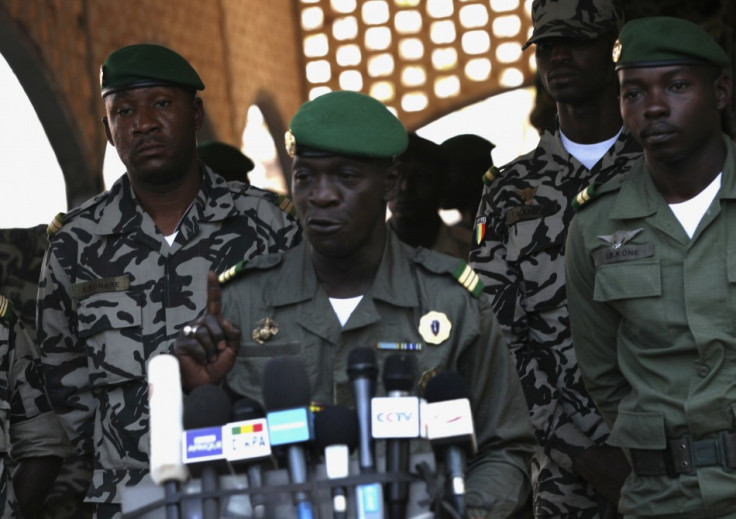Who is Amadou Haya Sanogo, leader of March 2012 military coup in Mali, going on trial?
Captain Haya Sanogo on trial for role in 21 'disappeared Bérets Rouges' soldiers executed in 2012.

The trial of Amadou Haya Sanogo, leader of the March 2012 military coup d'etat in Mali, is set to open in Sikasso, southern Mali, tomorrow (Wednesday 30 November).
IBTimes UK looks at the Malian military officer going on trial with 17 co-defendants for his role in the coup d'état against Malian President Amadou Toumani Touré.
Since January 2012, Mali was facing a rebellion by armed separatist Tuareg groups as well as an offensive by jihadist groups, who had already taken close to a quarter of the country. Amid this growing pressure on the state, a group of mutinying military officers took power in Bamako on 21 and 22 March 2012, overthrowing Touré, who had been in power since 2002.
The soldiers attacked several locations in the capital Bamako, including state television and military barracks, looted the presidential palace, before declaring that they had seized power just days before the scheduled presidential elections.
With Touré forced into hiding, those behind the coup declared themselves to be the National Committee for the Restoration of Democracy and the State (CNRDR) and set up a military junta headed by Captain Haya Sanogo.
At the time, soldiers from CNRDR said they had staged the mutiny because the government did not give them enough arms to tackle the Tuareg rebellion, which had forced up to 200,000 people from their homes.
The takeover was met with international condemnation and Mali's neighbours imposed harsh sanctions on the new junta, which then went to lose the northern part of the country to Tuareg forces.
Amid the ensuing confusion, so-called "Bérets Rouges", a parachutist unit of the army that had remained loyal to Touré, attempted a counter-coup. Led by Colonel Abdina Guindo, the overthrow was thwarted and allegedly violently repressed by the CNRDR. Dozens of Bérets Rouges were arrested.
According to the International Federation for Human Rights (FIDH) and Malian human rights non-governmental organisation AMDH, during the night of 2 May 2012, 21 of the Bérets Rouges soldiers were taken out of their cells and transported in military trucks towards Diago near Kati town – Haya Sanogo's headquarters some 20km from Bamako. The soldiers were executed there and buried in a communal grave, according to findings of a 2013-2015 criminal investigation carried out during the political transition.
Between November 2013 and January 2014, 27 people, including coup leader Haya Sanogo, were charged and taken into custody. The captain's trial in the case known as the "disappeared Bérets Rouges", to which FIDH and AMDH are civil parties, starts tomorrow.
© Copyright IBTimes 2024. All rights reserved.







